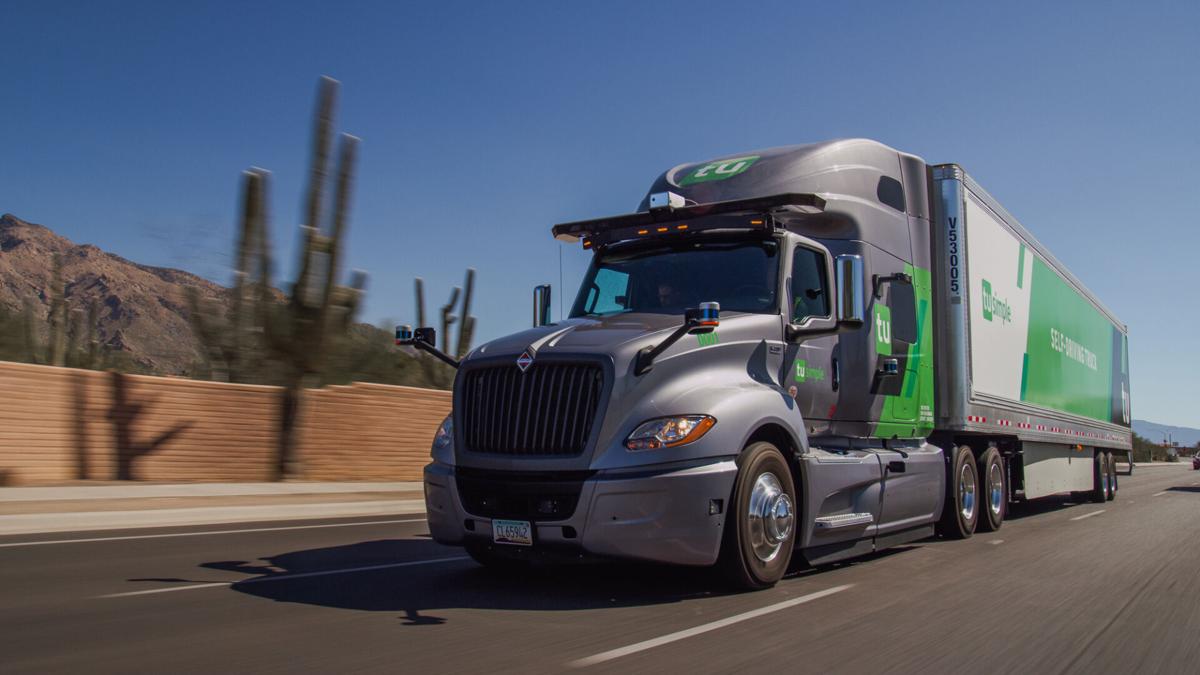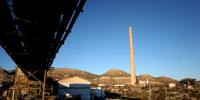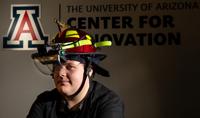Self-driving truck developer TuSimple is facing a federal investigation into a crash of one of its trucks in April during a run from its major development center and terminal on Tucson’s southeast side.
The company says it self-reported the incident to the National Highway Traffic Safety Administration and hosted a visit by officials of NHTSA and the Federal Motor Carrier Safety Administration, which is reviewing the incident.
According to the company, the crash occurred on April 6 in the Tucson area, where the company has been testing self-driving truck technology with human drivers aboard along Interstate 10 since 2015.
The company said “a human error occurred” when two operators in a TuSimple vehicle incorrectly reengaged the autonomous driving mode without completing all of the steps necessary to safely engage, resulting in the truck scraping a median.
No one was injured, there was no property damage and the only visible sign of the incident was a minor scrape on the truck, San Diego-based TuSimple said in an online post.
An apparent video of the April crash posted by a trucking blog showed the TuSimple semi narrowly missed striking a smaller truck.
The company said it immediately grounded its entire autonomous fleet and launched an independent review to determine the cause of the incident.
As a result, TuSimple upgraded all of its systems with new, automated system checks “to prevent this kind of human error from ever happening again,” the company said, noting that it reported the incident to NHTSA and the Arizona Department of Transportation.
“We are proud of our work at TuSimple and remain completely confident in our progress to deliver advanced autonomous trucking at a commercial scale to build a safer, more efficient, and sustainable future on the road,” the company said.
TuSimple did not respond to requests for additional comment.
Self-driving, self-crashing
The April incident is the only crash TuSimple has reported to NHTSA since July 2021, when the agency began requiring manufacturers and self-driving system developers to report such crashes.
Overall between July 2021 and May 15, NHTSA received 130 reports of crashes of vehicles equipped with “automated driving systems” — those capable of conditional autonomous operation, known as Level 3 automation, high automation (Level 4) or fully autonomous, Level 5 operation under standards developed by SAE International (formerly the Society of Automotive Engineers).
A dozen of those crashes occurred in Arizona, NHTSA’s report shows.
Waymo, a Google sister company that is testing autonomous taxi service in the Phoenix area, had by far the most reported crashes among automated driving system operators in the reporting period, with 62 nationwide.
During that reporting period, NHTSA also received 367 reports of crashes involving vehicles with so-called SAE Level 2 automation — controlling speed and steering with a human driver, now commonly used in new passenger vehicles — including 273 involving Tesla electric cars.
Fully autonomous vehicles are not yet legal in the U.S., though states including Arizona have passed laws allowing limited testing of such systems.
In December, TuSimple said it had successfully tested a completely driverless truck run on Interstate 10 from Tucson to Phoenix.
The test run required the company to file a detailed plan with the Arizona departments of Transportation and Public Safety and certify that the vehicle and system meets federal requirements, among other conditions.
Safety touted
TuSimple said that while NHTSA reports more than 500,000 crashes involving large trucks each year, its April wreck was the first incident for which it’s been responsible in seven years and 7.2 million miles of autonomous vehicle testing.
“While our safety record is many times better than traditional manually-driven trucks, we take our responsibility to find and resolve all safety issues very seriously,” the company said.
TuSimple also faces a pending federal lawsuit filed by a former employee for wrongful termination, including allegations that the company sidestepped critical safety testing.
In a lawsuit filed last year in the U.S. District Court Southern District of California, former TuSimple safety engineer John Lindland alleges that the company retaliated against him for refusing to sign off on unmet safety standards.
TuSimple has denied any wrongdoing and has moved for summary judgement to dismiss the case, but after the case was transferred to another judge in April, it has not yet been set for trial.
Wall Street reacts
Meanwhile, TuSimple’s stock has taken a beating after the video (tucne.ws/1l29) was posted and related news reports surfaced last week.
TuSimple has not verified the authenticity of the video and did not mention it in its posted explanation of the crash.
TuSimple shares closed Monday at $8.99 per share, down 97 cents or about 9.7%, in trading on the Nasdaq Stock Market.
The company, which has a market capitalization of more than $2 billion, went public in April 2021 at $40 per share, but has seen its shares trade between $50.30 and $5.99 per share in the past 12 months.
After posting a net loss of nearly $733 million in 2021, TuSimple in May reported a first-quarter net loss of about $112 million, down from $389 million in first-quarter 2021.
Millions in federal funds will support upgraded broadband internet access in outlying areas of Pima County, including Three Points, Ajo and the Tohono O'odham Nation.
The United Steelworkers and six other unions this week resumed negotiations with Asarco over the terms of a basic contract, the union says.
Two Canadian tech startups are targeting Tucson as a "soft landing" spot for U.S. entry, helped by a fast-growing University of Arizona program.








